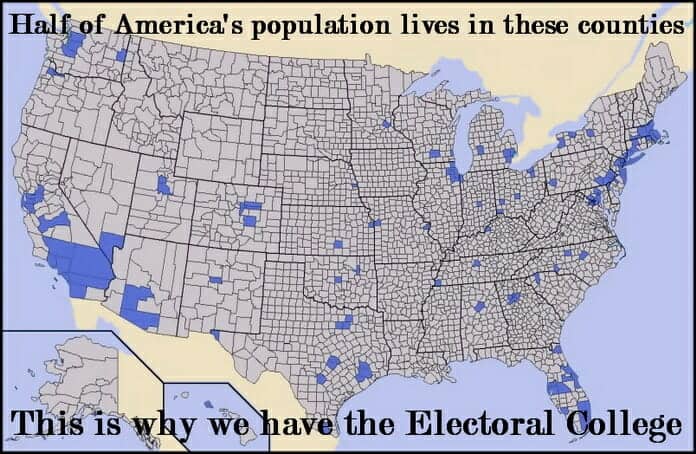Prager U


The Cold War
Remember, these countries actually fell to the spread of Communism:
➤ Poland, Czechoslovakia, Hungary, Romania, Bulgaria, Albania, Yugoslavia, and half of Germany, North Korea, Somalia, Ethiopia, Angola, Mozambique, Congo-Brazzaville, Benin, Vietnam, on and on.
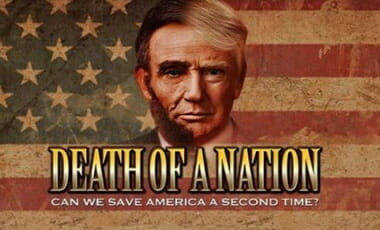
Michael Medved Interviews Dinesh D’Souza About His New Film
In this wonderful interview, Dinesh discusses his detractors LACK of knowledge about the content of his film and his positions taken in it. Discussion about the “Southern Strategy,” as well as other historical myths is always an added plus to those that enjoy our political and racial history and the mantras surrounding our past. I include some expanded thoughts by Michael in the opening of the following hour in regard to a caller, I also include a snippet of Larry Elder expanding a bit on Michael’s discussion of interracial marriage from PRAGER U. See my PAGE dealing with much of this HERE (it is big and may take a moment to load).
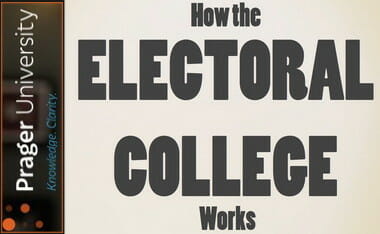
Three Courses On The Electoral College (Civics 101)
Do you understand what the Electoral College is? Or how it works? Or why America uses it to elect its presidents instead of just using a straight popular vote? Author, lawyer and Electoral College expert Tara Ross does, and she explains that to understand the Electoral College is to understand American democracy.
- James Madison (fourth President, co-author of the Federalist Papers and the “father” of the Constitution) – “Democracies have ever been spectacles of turbulence and contention; have ever been found incompatible with personal security, or the rights of property; and have, in general; been as short in their lives as they have been violent in their deaths.”
- John Adams (American political philosopher, first vice President and second President) – “Remember, democracy never lasts long. It soon wastes, exhausts, and murders itself. There never was a democracy yet that did not commit suicide.”
- Benjamin Rush (signer of the Declaration) – “A simple democracy… is one of the greatest of evils.”
- Fisher Ames (American political thinker and leader of the federalists [he entered Harvard at twelve and graduated by sixteen], author of the House language for the First Amendment) – “A democracy is a volcano which conceals the fiery materials of its own destruction. These will provide an eruption and carry desolation in their way.´ / “The known propensity of a democracy is to licentiousness [excessive license] which the ambitious call, and the ignorant believe to be liberty.”
- Governor Morris (signer and penman of the Constitution) – “We have seen the tumult of democracy terminate… as [it has] everywhere terminated, in despotism…. Democracy! Savage and wild. Thou who wouldst bring down the virtous and wise to thy level of folly and guilt.”
- John Quincy Adams (sixth President, son of John Adams [see above]) – “The experience of all former ages had shown that of all human governments, democracy was the most unstable, fluctuating and short-lived.”
- Noah Webster (American educator and journalist as well as publishing the first dictionary) – “In democracy… there are commonly tumults and disorders….. therefore a pure democracy is generally a very bad government. It is often the most tyrannical government on earth.”
- John Witherspoon (signer of the Declaration of Independence) – “Pure democracy cannot subsist long nor be carried far into the departments of state – it is very subject to caprice and the madness of popular rage.”
- Zephaniah Swift (author of America’s first legal text) – “It may generally be remarked that the more a government [or state] resembles a pure democracy the more they abound with disorder and confusion.”
Take note that as well ArticleIV, Section4 of the Constitution reads:
“The United States shall guarantee to every state in this union a republican form of government…“
Right now, there’s a well-organized, below-the-radar effort to render the Electoral College effectively useless. It’s called the National Popular Vote, and it would turn our presidential elections into a majority-rule affair. Would this be good or bad? Author, lawyer, and Electoral College expert Tara Ross explains.
You vote, but then what? Discover how your individual vote contributes to the popular vote and your state’s electoral vote in different ways–and see how votes are counted on both state and national levels.
Critics have long derided the Electoral College as a fusty relic of a bygone era, an unnecessary institution that one day might undermine democracy by electing a minority president. That day has arrived, assuming Gov. Bush wins the Florida recount as seems likely.
The fact that Bush is poised to become president without a plurality of the vote contravenes neither the letter nor the spirit of the Constitution. The wording of our basic law is clear: The winner in the Electoral College takes office as president. But what of the spirit of our institutions? Are we not a democracy that honors the will of the people? The very question indicates a misunderstanding of our Constitution.
James Madison’s famous Federalist No. 10 makes clear that the Founders fashioned a republic, not a pure democracy. To be sure, they knew that the consent of the governed was the ultimate basis of government, but the Founders denied that such consent could be reduced to simple majority or plurality rule. In fact, nothing could be more alien to the spirit of American constitutionalism than equating democracy will the direct, unrefined will of the people.
Recall the ways our constitution puts limits on any unchecked power, including the arbitrary will of the people. Power at the national level is divided among the three branches, each reflecting a different constituency. Power is divided yet again between the national government and the states. Madison noted that these two-fold divisions — the separation of powers and federalism — provided a “double security” for the rights of the people.
What about the democratic principle of one person, one vote? Isn’t that principle essential to our form of government? The Founders’ handiwork says otherwise. Neither the Senate, nor the Supreme Court, nor the president is elected on the basis of one person, one vote. That’s why a state like Montana, with 883,000 residents, gets the same number of Senators as California, with 33 million people. Consistency would require that if we abolish the Electoral College, we rid ourselves of the Senate as well. Are we ready to do that?
The filtering of the popular will through the Electoral College is an affirmation, rather than a betrayal, of the American republic. Doing away with the Electoral College would breach our fidelity to the spirit of the Constitution, a document expressly written to thwart the excesses of majoritarianism. Nonetheless, such fidelity will strike some as blind adherence to the past. For those skeptics, I would point out two other advantages the Electoral College offers.
First, we must keep in mind the likely effects of direct popular election of the president. We would probably see elections dominated by the most populous regions of the country or by several large metropolitan areas. In the 2000 election, for example, Vice President Gore could have put together a plurality or majority in the Northeast, parts of the Midwest, and California.
The victims in such elections would be those regions too sparsely populated to merit the attention of presidential candidates. Pure democrats would hardly regret that diminished status, but I wonder if a large and diverse nation should write off whole parts of its territory. We should keep in mind the regional conflicts that have plagued large and diverse nations like India, China, and Russia. The Electoral College is a good antidote to the poison of regionalism because it forces presidential candidates to seek support throughout the nation. By making sure no state will be left behind, it provides a measure of coherence to our nation.
Second, the Electoral College makes sure that the states count in presidential elections. As such, it is an important part of our federalist system — a system worth preserving. Historically, federalism is central to our grand constitutional effort to restrain power, but even in our own time we have found that devolving power to the states leads to important policy innovations (welfare reform).
If the Founders had wished to create a pure democracy, they would have done so. Those who now wish to do away with the Electoral College are welcome to amend the Constitution, but if they succeed, they will be taking America further away from its roots as a constitutional republic.
How did the terms “Elector” and “Electoral College” come into usage?
The term “electoral college” does not appear in the Constitution. Article II of the Constitution and the 12th Amendment refer to “electors,” but not to the “electoral college.” In the Federalist Papers (No. 68), Alexander Hamilton refers to the process of selecting the Executive, and refers to “the people of each State (who) shall choose a number of persons as electors,” but he does not use the term “electoral college.”
The founders appropriated the concept of electors from the Holy Roman Empire (962 – 1806). An elector was one of a number of princes of the various German states within the Holy Roman Empire who had a right to participate in the election of the German king (who generally was crowned as emperor). The term “college” (from the Latin collegium), refers to a body of persons that act as a unit, as in the college of cardinals who advise the Pope and vote in papal elections. In the early 1800’s, the term “electoral college” came into general usage as the unofficial designation for the group of citizens selected to cast votes for President and Vice President. It was first written into Federal law in 1845, and today the term appears in 3 U.S.C. section 4, in the section heading and in the text as “college of electors.”
Hillary wants a pure Democracy.
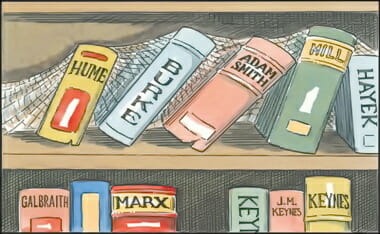
Dangerous People Are Teaching Your Kids |Updated|
Dangerous people are filling the heads of young people with dangerous nonsense. Who are these people? They are what Jordan Peterson calls “the post-modernists:” neo-Marxist professors who dominate our colleges and universities. And here’s the worst part: we are financing these nihilists with tax dollars, alumni gifts and tuition payments. Time to wise up.
This comes from THE LID:
TODAY’S PROFESSORS DON’T TEACH, THEY INDOCTRINATE PROGRESSIVISM
[….]
To understand and oppose the post-modernists, the ideas by which they orient themselves must be clearly identified.
First is their new unholy trinity of diversity, equity, and inclusion. Diversity is defined not by opinion, but by race, ethnicity or sexual identity; the goal is no longer equality of opportunity, but an insistence on equality of outcome; and inclusion is the use of identity-based quotas to attain this misconceived state of equity.
All the traditional rights of the West are to be considered secondary to these new values. Take, for example, freedom of speech—the very pillar of democracy. The post-modernists refuse to believe that people of good will can exchange ideas and reach consensus.
Their world is instead a Hobbesian nightmare of identity groups warring for power. They don’t see ideas that run contrary to their ideology as merely incorrect. They see them as integral to the oppressive system they wish to supplant and consider it a moral obligation to stifle and constrain their expression.
Second is a rejection of the free market—of the very idea that free, voluntary trading benefits everyone. These rejectionists won’t acknowledge that capitalism has lifted up hundreds of millions of people so they can for the first time in history afford food, shelter, clothing, transportation—even entertainment and travel. Those classified as low-income in the US (and, increasingly, everywhere else) are able to meet their basic needs. Meanwhile, in once-prosperous Venezuela—until recently the poster-child of the campus radicals—the middle-class lines up for toilet paper.
Third, and finally, are the politics of identity. Post-modernists don’t believe in individuals. You’re an exemplar of your race, sex, or sexual preference. You’re also either a victim or an oppressor. No wrong can be done by anyone in the former group, and no good by the latter. Such ideas of victimization do nothing but justify the use of power and engender intergroup conflict.
All these concepts originated with Karl Marx, the 19th-century German philosopher. Marx viewed the world as a gigantic class struggle—the bourgeoisie against the proletariat; the grasping rich against the desperately poor. But wherever his ideas were put into practice—in the Soviet Union, China, Vietnam, and Cambodia, to name just a few—whole economies failed, and tens of millions were killed. We fought a decades-long cold war to stop the spread of those murderous notions. But they’re back, in the new guise of identity politics.
The corrupt ideas of the post-modern neo-Marxists should be consigned to the dustbin of history. Instead, we underwrite their continuance in the very institutions where the central ideas of the West should be transmitted across the generations. Unless we stop, post-modernism will do to America and the entire Western world what it’s already done to its universities.
Two short clips from INDOCTRINATE U I like:

Don’t Make Things Worse (Adam Carolla)
Adam Carolla, comedian, social critic and host of the wildly popular Adam Carolla podcast, delivers the 2018 commencement address for PragerU. He offers some sage advice and makes a heart-felt request — as only Adam can.
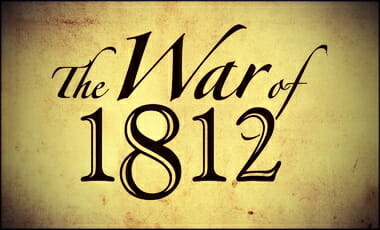
America’s 2nd War of Independence (War of 1812)
In this video, author Brian Kilmeade sheds light on the largely and unfortunately overlooked War of 1812. Kilmeade explains how this war got started, the daunting odds against a nation in its infancy, and the unlikely hero who secured America’s young nation’s future by pulling off one of the greatest upsets in military history.
First Invasion: The War of 1812, a History Channel documentary that first aired in 2004, portrays a young United States of America “on the brink of annihilation” as it battles the largest and most powerful empire on earth. Critics say the documentary is far too pro-American, and that it ignores or downplays crucial elements of the War of 1812. Others praise First Invasion for its compelling presentation of a far too neglected period of history.
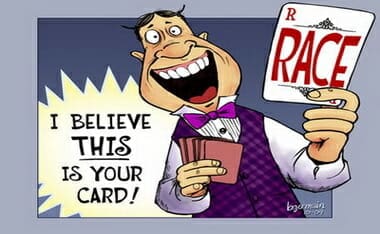
Playing the Black Card
In America, there’s a card more valuable than any card from Visa or American Express. What is it? How can you get one? Candace Owens, Communications Director for Turning Point USA, answers these questions.
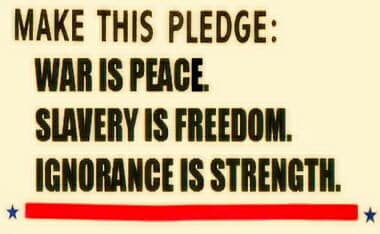
Control the Words, Control the Culture
The culture war is first and foremost a war of words – and the left is winning. The consequences can be seen everywhere: in politics, in education, in media. In this video, Michael Knowles, host of the Michael Knowles Show, explains why we should not cede another syllable.
JUST SOME EXAMPLES!
When Seattle police officers write use of force reports they no longer call a suspect a suspect.
“Community member” is the new term. Several officers say the term is offensive, explaining their work with violent suspects.
(RPT)
As noted before, on the right, we worry about actual issues: regulation-fueled economic decline, corruption in Government, the erosion of individual liberty, the unsustainable fiscal path of the national Government.
On the left, they worry about vocabulary.
(RPT)
“When it comes to the bedrock principles, I don’t disagree with him at all,” Cortes defended Trump on Thursday’s broadcast of MSNBC’s All In with Chris Hayes. “Those are twofold. Number one, we have to secure our border. Number two, there can be no citizenship for illegals. You cannot reward criminality.”
Reid stopped him right there.
“Hold on a second,” the MSNBCer said.
“I’m going to stop you right there. You are Hispanic, Steve. Are you comfortable with that term, illegals? That is a pejorative to a lot of people. Why do you use that term?” Reid asked, not believing a Latino would use such a term.
“You know why, because words matter,” Cortes said.
“Yeah, they do,” Reid shot back.
“If you do something that is against the law, it’s illegal,” Cortes reminded Reid. “If you go into a store and you shoplift, you’re not an undocumented holder of a good, you’re a thief. If you come to the United States against the immigration laws of the United States, you’re not undocumented, You’re illegal. …
(RPT)
A guide titled “Words That Hurt” on the website of the University of California, Davis, warns students to avoid using the phrase “you guys” — because, apparently, that’s really harmful or something.
“You guys [e]rases the identities of people who are in the room,” the guide states. It “generaliz[es] a group of people to be masculine.”
The purpose of the guide, which is published on the school’s Lesbian, Gay, Bisexual, Transgender, Queer, Intersex, Asexual Resource Center, is to remind students that “sometimes we say words without realizing the impact they may have on others.”
(RPT)
Florida Congresswoman Debbie Wasserman-Schultz suggested last week that the term “ObamaCare” was disparaging and shouldn’t be allowed on the House floor
(RPT)
Marissa Jenae Johnson from Seattle is reportedly a Black Lives Matter co-founder. Marissa likes to rant about her victimhood as a black American and how The Man makes life here intolerable. In this interview with FOX News Marissa says “all lives matter” is a slur.
(RPT)
A business class at Purdue University teaches students the phrase “America is a melting pot” is a microaggression, according to class handouts obtained by The College Fix. That phrase is among at least a dozen examples students were recently instructed on in the Management 301 course.
Additional microaggressions listed on the worksheet include: “Where are you from,” “There is only one race, the human race,” “Everyone can succeed in society if they work hard enough” and “I believe the most qualified person should get the job.”
These phrases are problematic because they promote the “myth of meritocracy” or represent “statements which assert that race or gender does not play a role in life successes,” the handout stated. Others are said to be color blind, apparently a bad thing that indicates “that a white person does not want to or need to acknowledge race,” according to the handout.
The Spring 2016 class largely focuses on teaching undergads how to advance their overall professional career development, such as obtaining internships and jobs. But the recent lesson on microaggressions unsettled at least one student in the class….
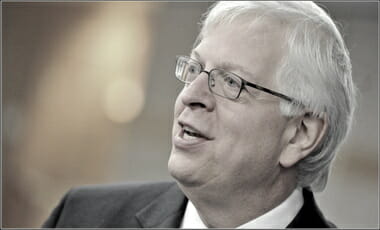
Dennis Prager @University-Wisconsin Madison
Widely regarded as one of the most eloquent and powerful speakers of his generation, Dennis Prager has lectured in nearly every one of the 50 states and all seven continents. Every day, he hosts the widely popular and influential nationally syndicated Dennis Prager Show. Prager is a prolific commentator with a weekly column and the author of four books. He has also produced three films. How will students react?
This time, you can tune in LIVE to catch the explosive talk and every minute of the fiery Q&A clashes no matter where you are in the country! Young America’s Foundation engages with students across the country to inspire them with the ideas of individual freedom, a strong national defense, free enterprise, and traditional values.
YAF is the principal outreach organization of the Conservative Movement and introduces hundreds of thousands of young Americans to these principles every year, most of whom have never heard the arguments for freedom and personal responsibility before. Learn more: http://yaf.org

Do You Have Any Republican Friends?
PragerU and Will Witt recently asked New Yorkers if they had any Republican friends. The responses we got were neither surprising nor tolerant.
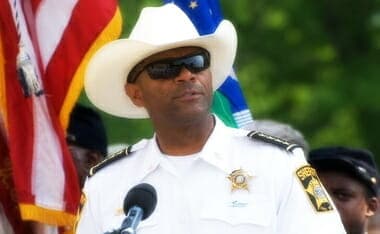
Cops Are the Good Guys
Are cops perfect? Of course not. And no one should expect them to be. But every single day, under the most difficult conditions, the police protect us from the bad guys. In other words, they do their job and they do it well. Former Milwaukee County Sheriff David Clarke makes it very clear: cops are not the problem.
